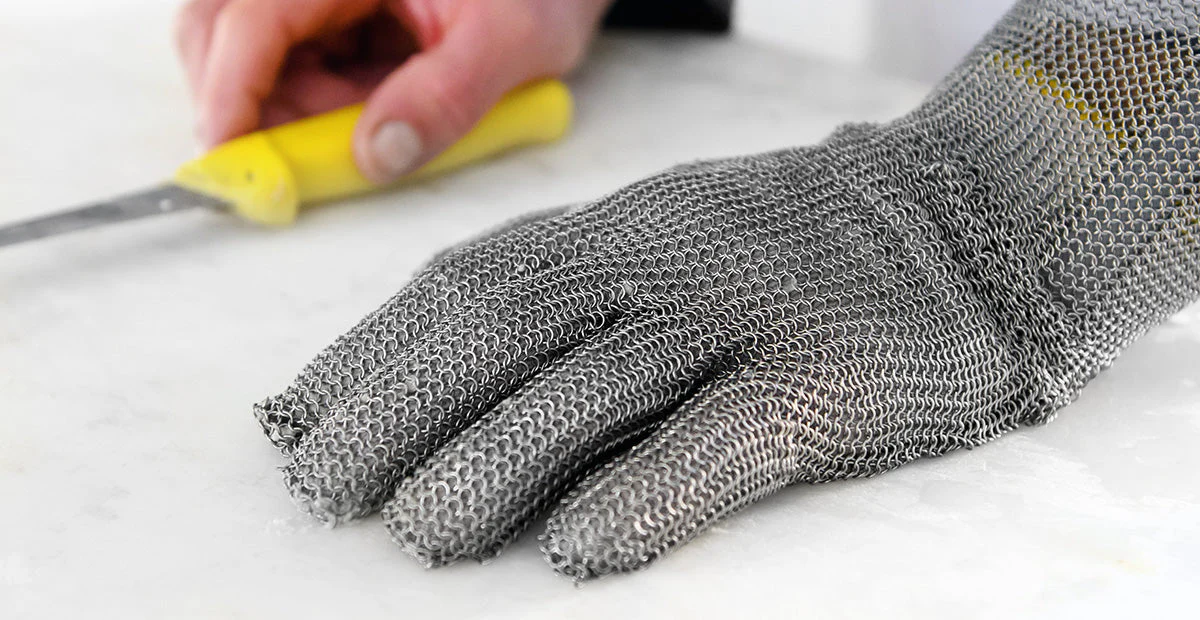Butcher's gloves are a necessity for ensuring the safety and efficiency of daily work. These multi-purpose gloves protect against cuts and scrapes, reduce cross-contamination, enhance grip and dexterity, and maintain hygiene standards.
When it comes to choosing the right gloves for the job, three primary options are commonly used: steel mesh gloves, cut-resistant poly gloves, and cotton gloves.
Steel Mesh Chainmail Gloves
Chainmail butcher's gloves offer the highest level of cut protection, and are usually the most expensive of these options. Steel mesh gloves are constructed with corrosion-resistant steel metal rings that are individually welded for strength, durability, and flexibility.
One key advantage of steel mesh gloves is resistance to bacterial growth. They can be easily cleaned with hot water and soap, making them ideal for maintaining sanitation standards. This is especially important in the meat processing industry, where cross-contamination can pose significant health risks. By using steel mesh gloves, butchers can protect themselves from injuries and prevent the spread of harmful bacteria, ultimately promoting food safety.
Cut-Resistant Poly Butcher Gloves
Cut-resistant poly gloves are a popular option for butchers around the mid-tier price range. These fabric gloves provide moderate to high cut protection. They are typically made from a combination of encapsulated stainless steel and polyester filament yarn, which offers excellent protection and comfort.
Cut-resistant poly gloves minimize cuts and lacerations without compromising dexterity and flexibility. These gloves are bleach safe and washable for easy maintenance and cleanliness. Added bonus - they help keep your hands warm when handling cold product.
Cotton Gloves
Cotton gloves provide a moderate level of cut protection and also help keep hands warm while handling or cutting meat in colder environments, ensuring butcher's hands remain comfortable and agile even in chilly conditions.
Another advantage of cotton gloves is slip-resistance. The cotton material provides a better grip, reducing the chances of accidental slips or drops. This is especially beneficial when working with larger cuts of meat that may be heavy or unwieldy.
Cotton butcher gloves are typically the cheapest option. A great way to offer moderate protection and better grip on a budget.
So which one is right for you? Shop our collection of butcher's gloves and decide for yourself.



